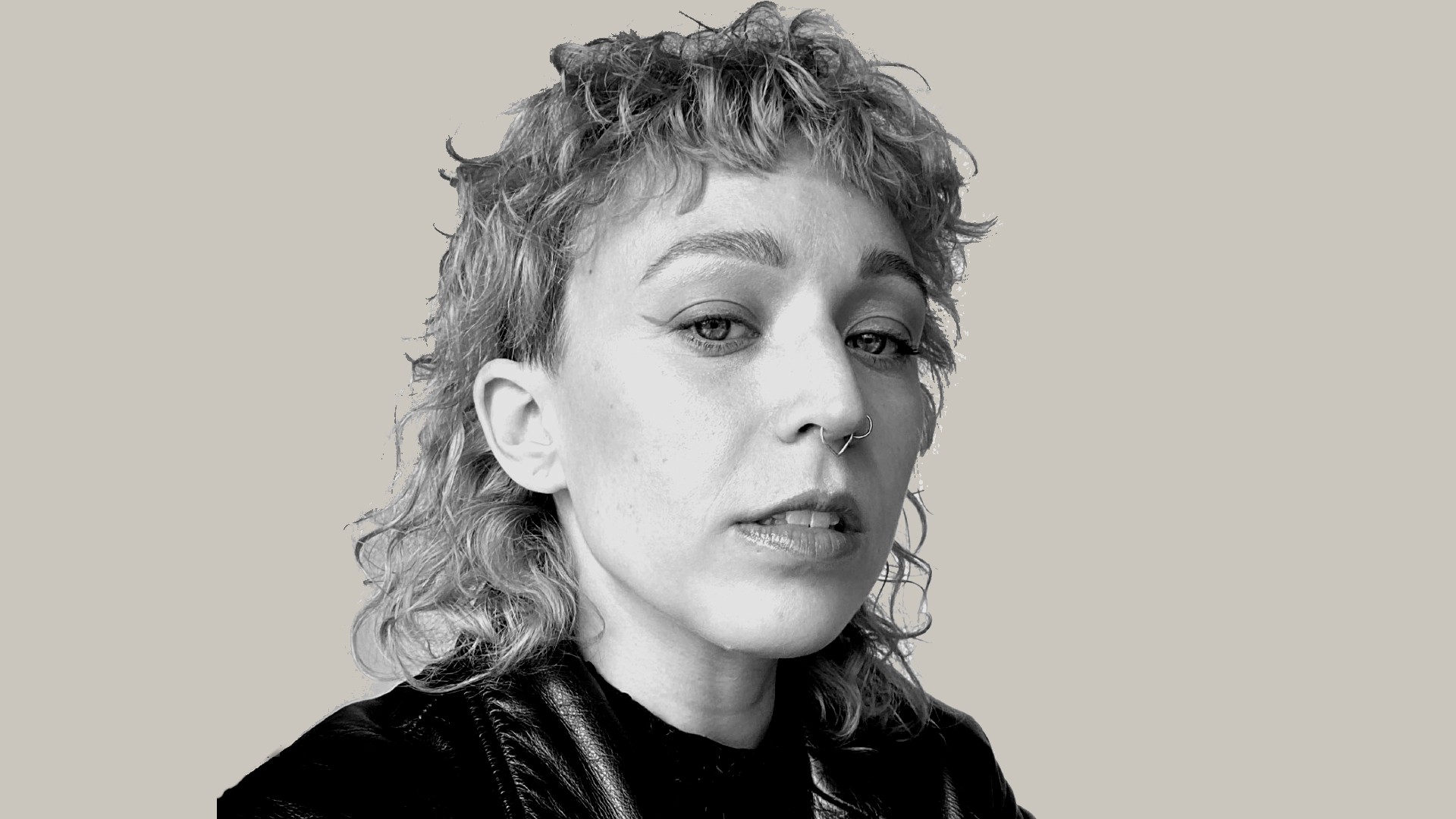No game does pride like Apex Legends
For Pride Month, we spoke to Respawn about Apex Legends and its inclusive cast of LGBTQIA+ characters
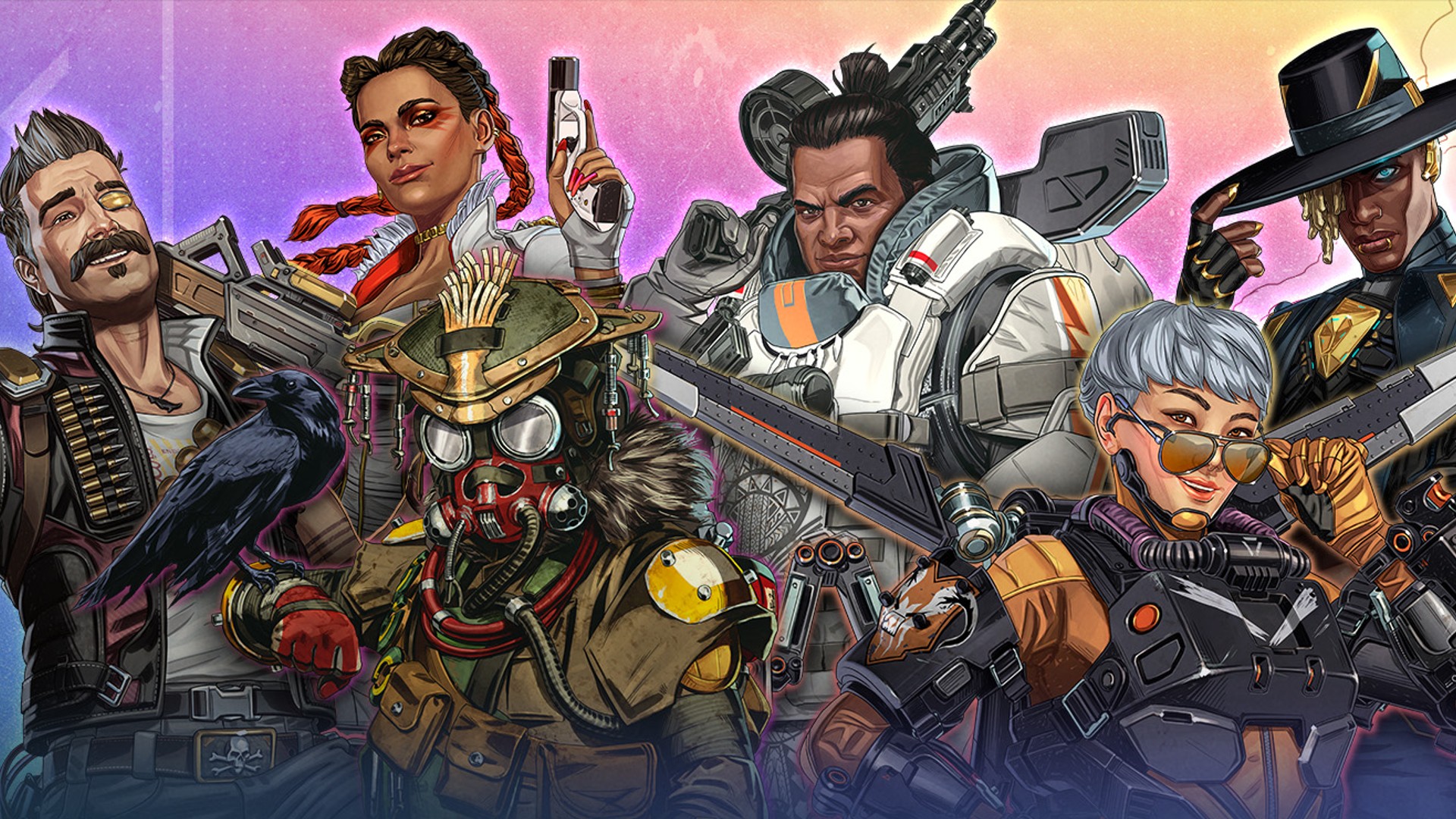
Apex Legends has set a very high bar for LGBTQIA representation in modern multiplayer games – so high, in fact, that you'd be hard-pressed to find any game that comes even close to it. From a nonbinary character whose pronouns are correctly used by other Legends to two openly gay cis women having flirtatious banter mid-match, Apex Legends is impressively diverse
Its level of representation extends into the hallways of Respawn, where employees infuse characters with their own lived experiences to make Apex Legends even more reflective of a modern global community. And players recognize these efforts, often citing Apex Legends as one of the few games where they see themselves and their genders and sexualities reflected back at them. Apex Legends may be a battle royale, but it's paving the way when it comes to LGBTQIA characters and ideologies in video games.
The Gay Agenda
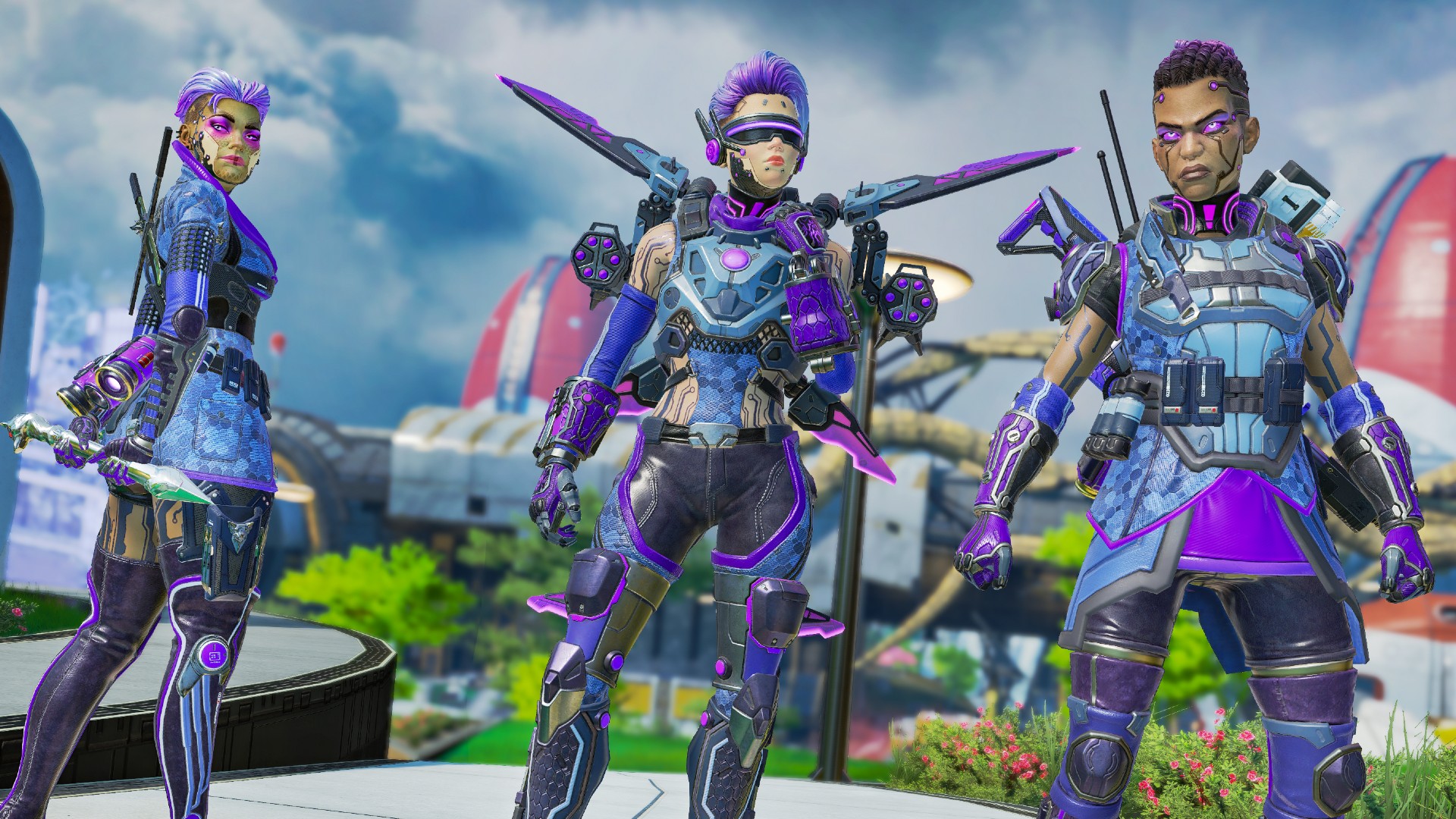
A quick look at the Apex Legends roster shows 21 characters, eight of which fall outside of heteronormative sexuality/gender spectrums. Fuse is pansexual, Loba is bisexual, Gibraltar is gay, Bloodhound is non-binary, Valkyrie is a lesbian, Bangalore has been romantically linked to Loba, Seer is pansexual, and Mirage is questioning his sexuality. Respawn has not hesitated when asked for clarification or details about these characters: narrative director Amanda Doiron took to Twitter to make it clear that Seer was not attracted to "a specific gender" when asked by players, and in reference to Valkyrie's sexuality, writer Tom Casiello said in an interview that "we don't want you playing our game" if you have a problem with it.
The team at Respawn echoes those sentiments when I reach out to chat about Pride and Apex Legends, and go even further making the company's stance on LGBTQIA rights and identities infinitely clear. When asked about the decision behind including such diverse characters like Bloodhound and Valkyrie, lead writer Ashley Reed tells me that "it’s important for us to include characters from the LGBTQIA community in our game because they exist in the real world, and we want to represent that." It's as simple as that.
This didn’t begin as a box to check or much of a required conversation, it was simply the state of the world and was naturally built into the development of our characters.
Manny Hagopian, narrative director
As far as how the decision-making process behind including these diverse characters went - there wasn't one. "This didn’t begin as a box to check or much of a required conversation, it was simply the state of the world and was naturally built into the development of our characters," says narrative director Manny Hagopian. "The first character written as LGBTQ+ was Gibraltar, which was not discussed and chosen, but instead, defined in his backstory and embedded into his character. We launched Apex with a cast full of diverse and inclusive characters, but this was not for recognition nor to combat toxicity – it was because it was. They were real characters who lived in our game who represented real people who live in our lives."
It's this natural inclusion that makes Apex Legends special – there's a casualness to its queerness that doesn't feel performative. Not only does Respawn loudly and declaratively include LGBTQIA+ characters and in-game icons, but the identities of its characters are woven into matches and season trailers, making it infinitely clear that this is a game full of queer people - people just like us. And those characters have wants and needs and complicated relationships and trauma and fleshed-out personalities just like members of the IRL queer community.
Let's have a kiki
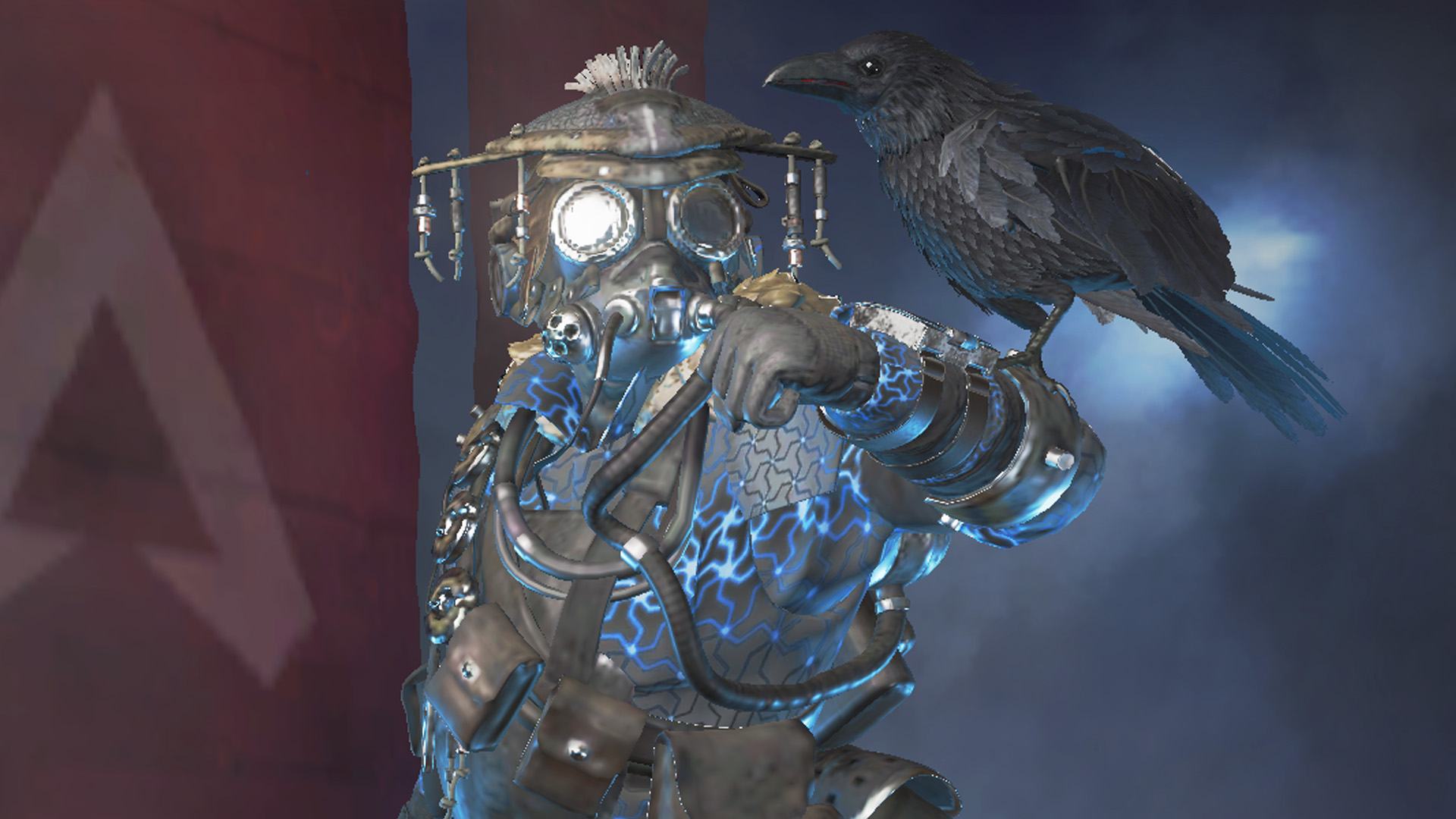
That's not how most games approach their LGBTQIA characters. Look at Overwatch, for example, which has queer characters but developer Blizzard limits their stories almost exclusively to media outside of the games. If you don't read the comics or other supplemental materials, you wouldn't know that cover star Tracer is a lesbian, or Soldier 76 is gay. Tracer has one bit of in-game dialogue specific to a single map that mentions Emily (her girlfriend), but it's not obvious that she's referencing her partner. Apex Legends couldn't be more different, thanks to frequent in-game dialogue that centers its Legends' gender and sexual identities.
Sign up to the GamesRadar+ Newsletter
Weekly digests, tales from the communities you love, and more
Apex Legends' dynamic dialogue system means certain characters will have interactions specific to each other, or in response to areas that they come across on the map. Reed tells me this is how the team injects story into the battle royale, as it gave them "an opportunity to more explicitly reference characters’ sexualities and gender identities in their dialogue, because there were more opportunities for it to come up naturally." She continues: "Valkyrie and Loba flirt during matches because they can. Gibraltar reminisces about his boyfriend at the collapsed Thunderdome site where they first met. Those are the kinds of things that we can do in-game and then expand on in other content."
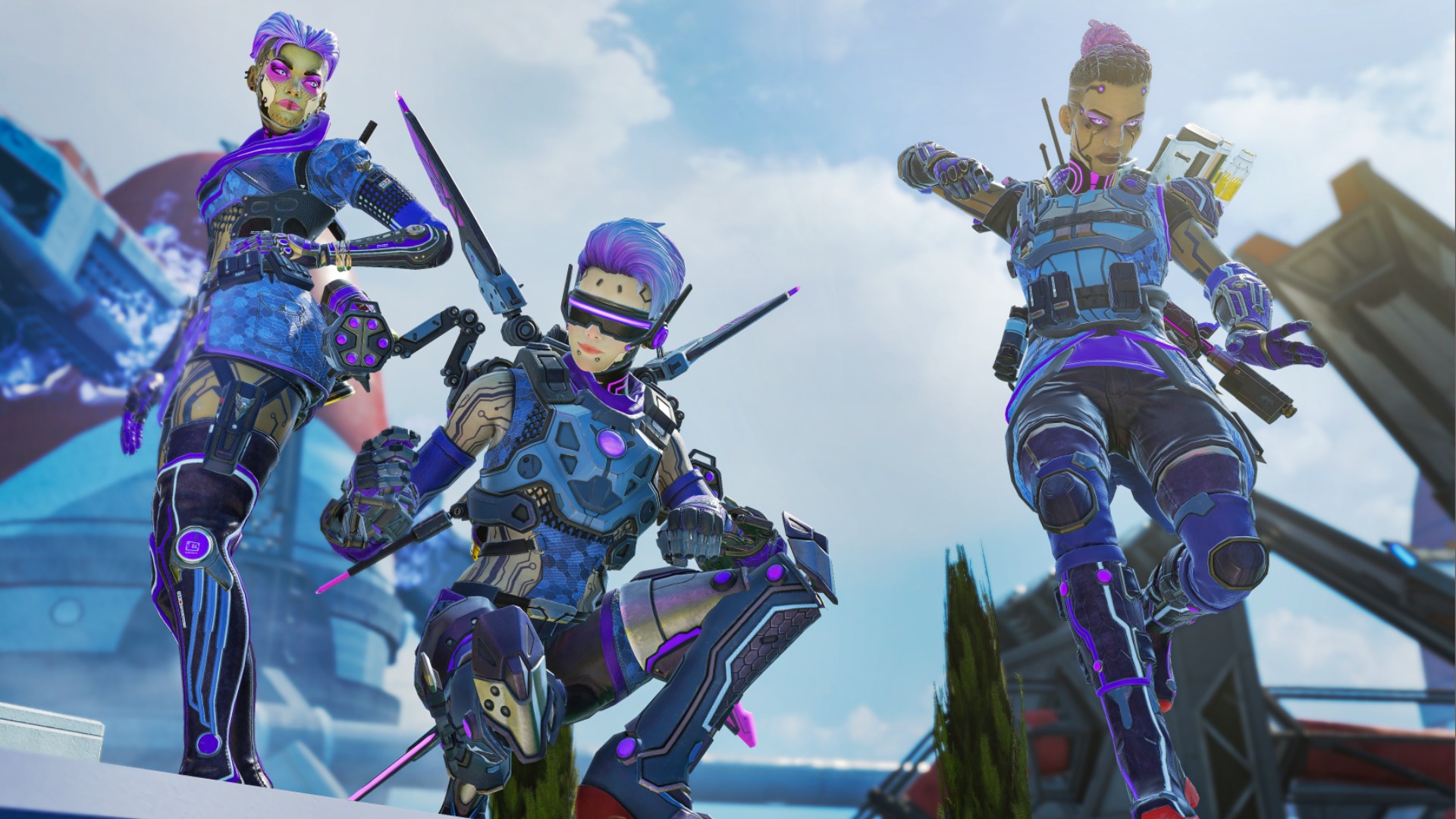
Valkyrie and Loba flirt during matches because they can.
Ashley Reed, lead writer
As a bisexual woman, I distinctly remember the first time Valk and Loba flirted in one of my matches and the ear-to-ear grin it elicited. That Apex Legends Season 12 doubled-down on their flirtation, and the subsequent queer love triangle it has caused, is deliciously dramatic and painfully realistic. Bangalore and Loba used to be romantically involved, but they never put a label on their relationship, and at the end of Season 9 Bangalore insisted they were "just friends." This ostensibly thrust Loba into newcomer Valkyrie's arms, and their flirtation has grown into a major point of contention for the three women that plays out both in-game and outside of it.
Hagopian explains how this dialogue system has helped provide a "natural growth" for character storylines, even when it's posed unique challenges. "The difficult one was Bloodhound – who is non-binary – because in first-person they/them pronouns are not needed, therefore we had to find ways to speak about Bloodhound in third-person to find an opportunity for those pronouns," he tells me. Hagopian's real-world experiences helped shape the trajectory of Bloodhound and ensure the team was faithfully depicting a non-binary character. "At the time we were developing Bloodhound, a close friend of mine was coming out as non-binary, so that certainly was an influence," he points out.
Gaypex Legends
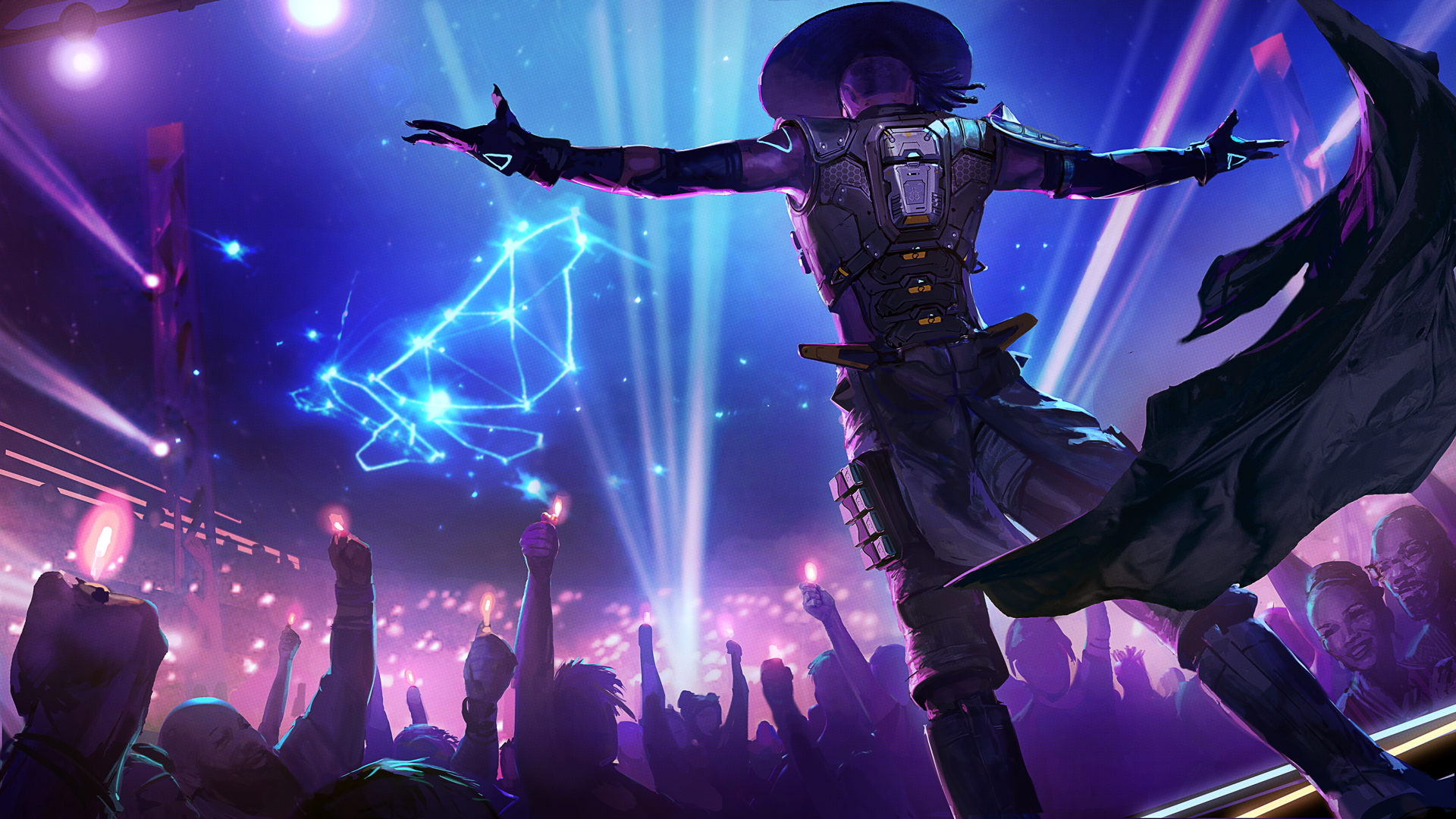
Apex Legends' diversity has been met almost uniformly with positive feedback from players. The community writes tons of fan fiction, shares heaps of fan art, and speaks of their delight at seeing themselves represented in-game. A diversity, equity, and inclusion study by Newzzo reported by GamesIndustryBiz found that over 75% of Apex Legends players believe the game has modern to very high inclusivity, and that diversity is not seen as "off-putting or shoehorned in." That Apex Legends is one of the most popular games in the world means more and more people are seeing themselves represented in a game that they play and sticking around for more.
When I ask Reed how the feedback has been, she responds with "does 'overwhelming' work?" She elaborates further, though, adding that the team "put our all into representing those characters effectively, but still could never be 100% how people would feel about them – which made the outpouring of support from the community that much more incredible. The stories people have told us in person and on social media – about how they love these characters and feel seen because they exist – mean so much to us."
The stories people have told us in person and on social media...mean so much to us.
Ashley Reed, lead writer
And while Respawn has consistently put representation at the top of its roadmap, its employees are learning and growing alongside the game. "I personally have grown more of an understanding of the LGBTQ+ community through Apex, and I’ve seen many others learning and growing because of our fans, their stories and art, and the support they give each other," says Hagopian. "We may not get it right every single time with every single detail, but we are trying and growing to get better every single day."
Since its launch in 2019, Respawn has been loud and outspoken about queer rights both within Apex Legends and outside of it. The company recently tweeted an image that includes the phrase "trans rights are human rights" in response to the swath of anti-trans legislation and sentiments in the United States and abroad, and its employees and voice actors are active on social media. From its inception, it's been clear that the team is dedicated to creating characters that are reflective of both its community and a large, global community, and its efforts have resulted in a game that's as vibrant and diverse as it is enjoyable. "We might be a Battle Royale game, but we are a squad-based community who I believe have each other’s back," says Hagopian. "The more we build representation, the more support we will all have for each other in the end."
How games like The Sims and Mass Effect helped me suss out my sexuality.
Alyssa Mercante is an editor and features writer at GamesRadar based out of Brooklyn, NY. Prior to entering the industry, she got her Masters's degree in Modern and Contemporary Literature at Newcastle University with a dissertation focusing on contemporary indie games. She spends most of her time playing competitive shooters and in-depth RPGs and was recently on a PAX Panel about the best bars in video games. In her spare time Alyssa rescues cats, practices her Italian, and plays soccer.
